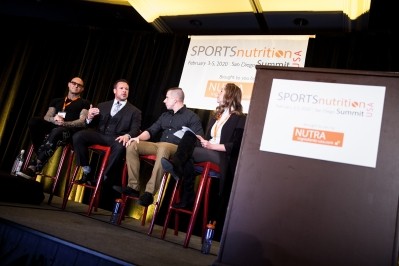FTC settles $26 million case over fraudulent cognitive support claims

The case was pursued against a number of defendants who operated businesses under a variety of names. The case named 12 corporate entities and four persons, all revolving around the sale of dietary supplements marketed under names including Geniux, EVO and Ion-Z.
The defendants were alleged to have made false claims about the products. They were also charged with embedding those claims in web pages set up to look like third party news reports. Additionally, FTC alleged the fake websites had falsely attributed the dramatic achievements of scientists and others — including Stephen Hawking, Bill Gates, and Elon Musk — to the Geniux products.
Concern about aging population
“With an aging population, it is more important than ever that advertisers have solid evidence to back up their claims about memory and cognitive health benefits,” said Andrew Smith, Director of the FTC’s Bureau of Consumer Protection. “Moreover, the FTC will hold companies accountable when they deceptively design their ads to look like news articles and fabricate celebrity endorsements and consumer testimonials.”
According to the FTC’s complaint, the defendants Fred Richard Guerra, III, Lanty Paul Gray, Jr., Rafat Abbas, and Robby O. Salaheddine owned a complex web of corporate entities. Between about August 2012 and January 2017 the defendants marketed and sold the purported cognitive enhancement dietary supplements, which cost between $47 and $57 per bottle.
Specific claims lacked substantiation
FTC alleged the defendants fraudulently claimed the Geniux products could: improve short- and long-term memory; increase focus by as much as 300%; increase concentration; prevent memory loss; boost brain power by as much as 89.2 percent and increase IQ by as much as 100%. The ads claimed that scientists were calling their “Smart Pill ‘Viagra for the Brain,’” and that it should be “taken as directed for extreme IQ effects.”
The ads also allegedly falsely claimed that the Geniux products had been tested in over 2,000 clinical trials and that scientific studies proved the Geniux products increase users’ focus “by up to 121%,” “sky-rocket concentration by 32%,” and boost brain power, memory recall, and IQ. The FTC alleges that the defendants made these claims on their own websites, as well as through the websites of at least 36 third-party affiliate networks. Some websites were deceptively formatted to look like — but were not — real news sites, to lure consumers to the defendants’ websites where they could purchase the Geniux products.
The FTC complaint says the products were marketed in different formulations with as many as 15 active ingredients on the label. But the complaint does not specify what those ingredients were other than to say that in some cases the amounts of the ingredients were not specified on the label.
Mother lode of things not to do
Attorney Justin Prochnow, a shareholder in the firm Greenberg Traurig, said occasionally the actions of some marketers are so over the top that it beggars belief that their schemes went on as long as they did. In this case, the fraudulent scheme proceeded for almost five years.
“Sometimes with warning letters they are kind of a mother lode of things not to do,” Prochnow told NutraIngredients-USA.
“This case emphasizes that products that address memory, concentration and focus continue to be products scrutinized heavily by FTC, especially when those products are seen to be addressing older populations,” he said.
Prochnow said the present case is reminiscent of the açai scam of few years ago in which phony websites set up to look like actual news sites purported to report on the weight loss benefits of the ingredient.
Ivan Wasserman, managing partner of the DC office of law firm Amin Talati Upadhye, said FTC has had a long standing policy of protecting certain vulnerable populations from the activities of underhanded marketers.
“The elderly, children, people with serious diseases, even people who are desperate to lose weight, those have been FTC’s list of priorities as long as I can remember. You can’t go after everyone, and they’ve always said their priorities would be on those vulnerable populations,” Wasserman said.
“They have also announced they would prioritize scams directed at military personnel as well,” he added.
FTC said the first order imposes a $14,564,891 judgment, which will be partially suspended after the defendants pay $523,000, including $243,000, $100,000, and $180,000, paid by Guerra, Gray, and Abbas, respectively. The second order imposes an $11,587,117 judgment, which will be partially suspended once defendant Salaheddine pays $100,000. Each judgment will immediately become due if it is later found that the defendants misrepresented their financial condition.
















